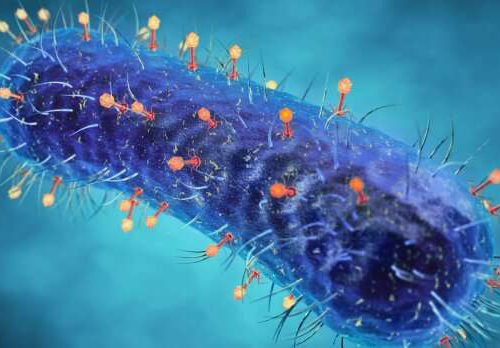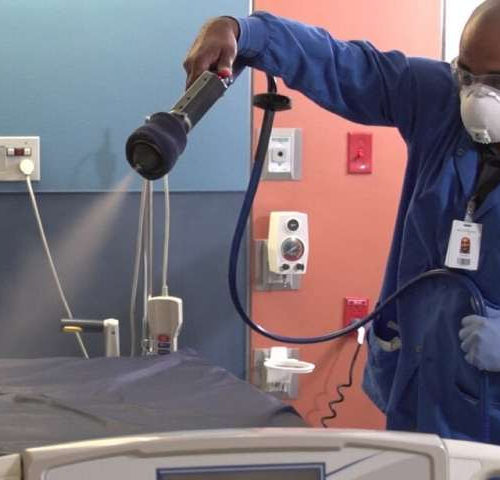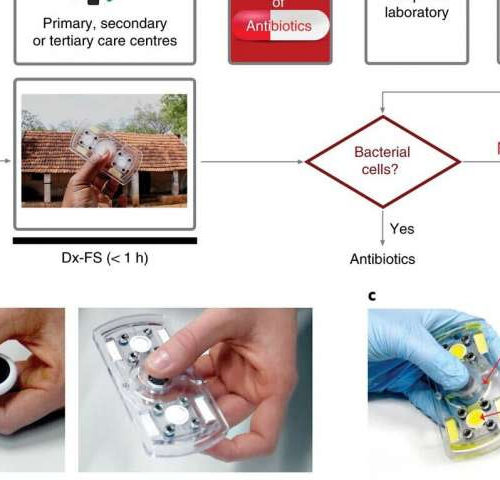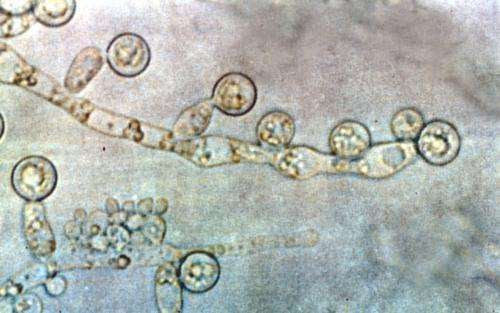by University of Birmingham A type of virus that preys on bacteria could be harnessed to combat bacterial infections in patients whose immune systems have been weakened by the SARS-CoV-2 virus that causes the COVID-19 disease, according to an expert at the University of Birmingham and the Cancer Registry of Norway. Called bacteriophages, these viruses...
Tag: <span>Antimicrobials</span>
New killing mechanism discovered in ‘game-changing’ antibiotic
Scientists at the University of Liverpool and University of Utrecht have taken another step forward on their quest to develop a viable drug based on teixobactin – a new class of potent natural antibiotic capable of killing superbugs. Research published in Nature Communications provides fundamental new insights into how teixobactins kill bacteria, including the discovery...
Continuously active surface disinfectants may provide additional barrier against the spread of viruses
by Rosemary Brandt, University of Arizona In the battle to slow or prevent the transmission of viruses, such as the novel coronavirus, continuously active disinfectants could provide a new line of defense, according to a recent University of Arizona study released on the health sciences preprint server MedRxiv. While disinfecting high-contact surfaces is an important...
A fidget spinner-like device for speedy detection of UTIs in urine
The Dx-FS as a POCT device for low-resource settings. a, In developing countries such as India, healthcare is classified into three levels: primary, secondary and tertiary care. Although secondary and tertiary care centres are equipped with laboratories for UTI screening, the same does not exist in primary care centres34,35. Patients seeking intervention with symptoms of...
Using human brain tissue in lab dishes, researchers show herpes link to Alzheimer’s
Asmall 3D version of the human brain develops key features of Alzheimer’s disease when it is infected with a virus that causes cold sores, scientists reported on Wednesday, adding to the evidence that this most common form of dementia can be caused by a common microbe. The new research, published in Science Advances, is the...
This new coating protects surfaces from bacteria and viruses for up to 90 days
Shopping carts and baskets are disinfected after every use to prevent the spread of deadly infections. This takes a lot of time and is rather expensive. However, because of work of scientists from The Hong Kong University of Science and Technology, disinfection procedures could be much more rare. Scientists in Hong Kong have developed a...
New drug formulation could treat Candida infections
by University of Bristol With antimicrobial resistance (AMR) increasing around the world, new research led by the University of Bristol has shown a new drug formulation could possibly be used in antifungal treatments against Candida infections. Candida albicans, a well-known yeast usually seen in the mouth, skin, gut and vagina, is reported to form biofilms...
Potent antimicrobial found that shows promise in fighting staph infections
Research led by scientists from McMaster University has yielded a potent antimicrobial that works against the toughest infectious disease strains. The find could be the beginning of developing new therapeutics to combat drug-resistant infections. Image credit: Pixabay (Free Pixabay licence) The discovery is important as it is directly related to the development of Staphylococcus aureus diseases, known popularly...
Microbiome: Untapped source of novel antimicrobials
by Delthia Ricks , Medical Xpress Just as Gold Rush prospectors once mined the Northern California hills for the shiny precious metal, “bioprospectors” are searching for a new prize: potential antimicrobial molecules—and they are hunting them down in the human microbiome. For nearly two decades scientists have been lifting the veil of mystery from the...
Encouraging signs for potential new antibiotic
A new antibiotic developed at the University of Plymouth is for the first time shown to be a viable alternative to established antimicrobials A study published online today (17 February 2017) in the Journal of Antimicrobial Chemotherapy, reveals strong evidence that the first in a new class of antibiotic is as effective as an established...
- 1
- 2







